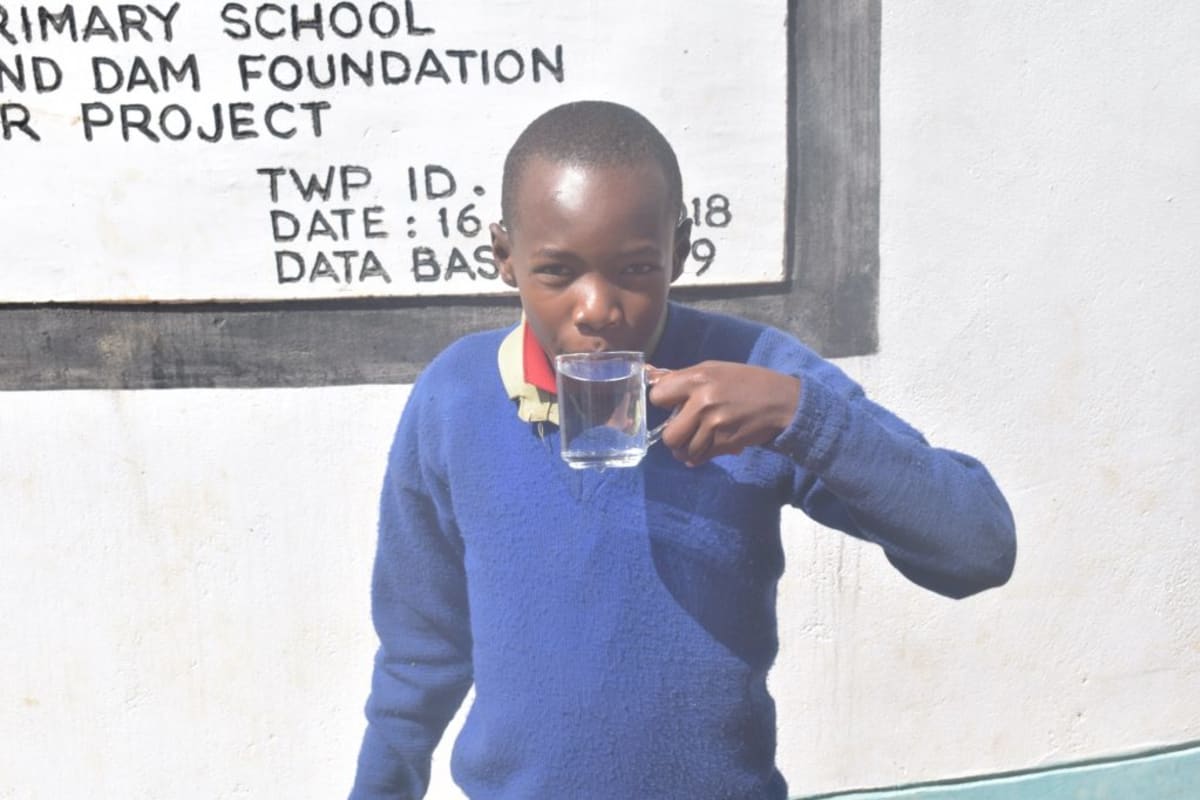Ndaluni Primary School is located in a peaceful rural setting. The area is grey with dry tree branches swaying in the breeze. The buildings are ancient, some with newly cemented floors while others are left barren and decommissioned with their old, crumbling roofs wasting away.
The school was started in 1966 by the Mwigwani District Education Board and now has 282 students enrolled. They also employ eight teachers and two support staff.
Students are expected to arrive at 6:45am each morning to sit through an hour's study hall. Normal lessons go from 8:30am to 3:10pm, followed by sports, another study hall, and dismissal at 5pm.
Unsafe Water
A cement tank was built for the school's opening in 1966, but it has been rendered useless with its aged, crumbling roof and walls. Since then, the school acquired two plastic tanks to collect rainwater.
The 10,000-liter plastic tank no longer works because of a tear. So now, the 5,000-liter tank is all that students have. This water is strictly rationed throughout the day to meet drinking and cooking needs.
The rains in this region are seasonal. There are more dry seasons than wet seasons, therefore making it hard to access water after their tank runs dry. The school must then resort to purchasing water from local vendors (oftentimes students' parents), which is costly for them. And even then, these vendors are getting their water from open, dirty sources. Students often suffer from stomachaches and diarrhea. If they made it to the clinic, they'd most likely find out they're suffering from typhoid.
"We lack facilities to maintain high standards of cleanliness in the school. Inadequate water supply has also increased the rate at which our students fall sick, due to their drinking untreated water," Headteacher Kituto told us.
Sanitation
There are six pit latrines for students, but they're rarely washed due to lack of water. Ash is thrown down the pit to cover up the smell. There's not even enough water around to wash hands after using the latrine.
Here's what we're going to do about it:
Training
Students and staff will be trained for one day. Those in attendance will form a school health club that will promote good hygiene and sanitation practices both at school and home. They will learn all of the steps to proper handwashing, how to treat water, and how to keep their environment clean. The school will also be taught how to best oversee and maintain their new rainwater catchment tank and handwashing stations.
Handwashing Stations
Three handwashing stations will be delivered at the project’s completion. These are 1,000-liter plastic tanks fitted with four taps. The health club and school management will be responsible for making sure tanks are filled with water and that a cleaning agent such as soap or ash is available.
Rainwater Catchment Tank
We will build a 104,000-liter rainwater catchment tank for this school. This water will benefit the students, teachers, and supplementary staff. Parents will mobilize the materials needed for construction, such as sand and stone. They will also lend some strong arms to help with the actual construction.
The huge capacity of this tank makes the others look tiny in comparison; 104,000 liters should be enough water to carry students and staff through the entire dry season. As soon as the tank has time to cure, it can begin to collect rainwater for drinking, cooking and cleaning!
This project is a part of our shared program with Africa Sand Dam Foundation. Our team is pleased to provide the reports for this project (edited for clarity) thanks to the hard work of our friends in Kenya.

 Rainwater Catchment
Rainwater Catchment
 Rehabilitation Project
Rehabilitation Project

































